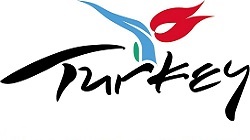Turkiye, the majority of whose population is Muslim, is a secular democratic country. This feature of the country indicates a compromise between Islamic faith and democratic values. Turkiye, as a country consisting of both western and Islamic organizations, under the auspices of the UN leader in enterprise "Alliance of Civilizations " with Spain. Turkiye's membership in the EU will increase its impact as a global player for the EU to create an image of the EU not as a closed "Christian club" but as an alliance of unified democratic values, thereby strengthening its credibility in the Islamic world and setting an example of preventing the "Conflict of Civilizations".
According to the address base of the population, at the end of 2013 the total population in Turkiye reached 76 667 864. The most populated cities are Istanbul, Ankara and Izmir, respectively.
According to the Turkish Institute of Statistics (TÜİK), the average age of the population in Turkiye has increased. The average age in Turkiye in 2012 was 30.1, and in 2013 - 30.4. While the average age in the male part of the population is 29.8, in the female part of the population is 31. In turn, the average age is the highest in Sinop (38.2), Balikesir (37.7), and Edirne (37, 6); and the lowest in the province of Şırnak (18.7), Şanlıurfa (19) and Agrı (19.7). While in 2012 in the age group 15-64 the working population was 67.6%, in 2013, with an increase of 0.1%, the working population was 67.7% (51 926 356).
While the proportion of the children's age group (0-14) is 24.6% (18 849 814) of the population and is in regression, the group of 65 and above increased by 7.7% (5,891,694).
Since Turkiye is a secular country, religion is separated from the state. 98% of the population of Turkiye professes Islam. According to the Constitution of Turkiye, the creation of religious or ethnic parties is not legal. As a rule, conservative parties are those who vote for religious sensitivity. In the first years of the Republic of Turkiye, concluding that religion cannot be controlled outside the state, it was decided that religion should be under the supervision of the state. Proceeding from this, on March 3, 1924, the Directorate for Religious Affairs was established, as an organization that began with the apparatus of the Prime Minister. This organization provides religious services to individuals and the management of mosques. Freedom of religious beliefs, individual religious practice,
Form of government of Turkiye - Republic. The Turkish Republic was founded by Mustafa Kemal Ataturk in 1923. The official language of Turkiye is Turkish. Today almost 100 million people speak Turkish in Turkiye. There is secular democratic governance and the issue of separation of powers. Parliament is responsible for legislative matters, the government conducts executive cases, and independent courts conduct court cases. The capital of Turkiye is Ankara.
Source: Ministry of Health of the Republic of Turkiye

WE INVITE YOU TO TURKEY FOR HEALTH!

WE INVITE YOU TO TURKEY FOR HEALTH!

WE INVITE YOU TO TURKEY FOR HEALTH!

WE INVITE YOU TO TURKEY FOR HEALTH!
